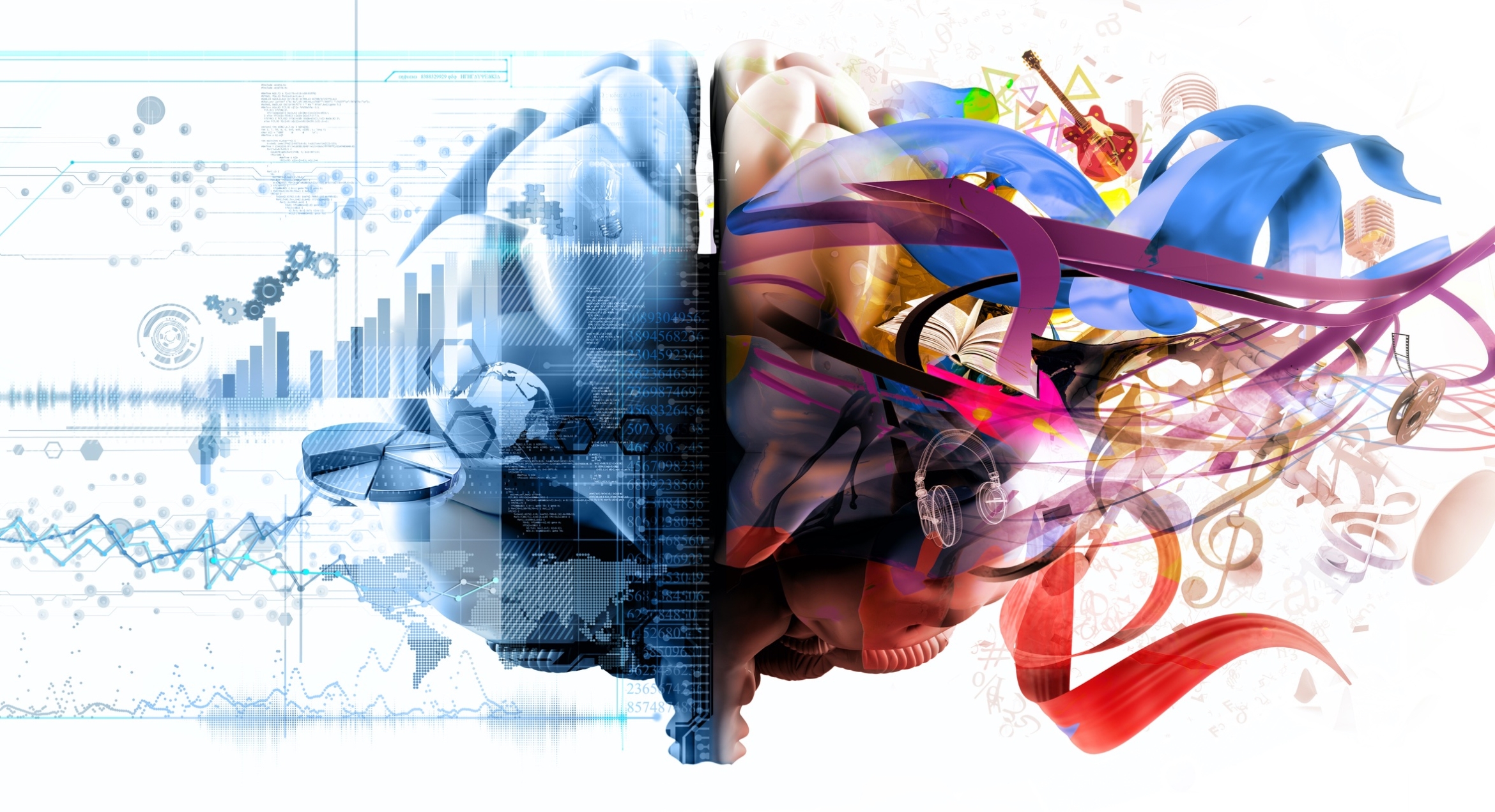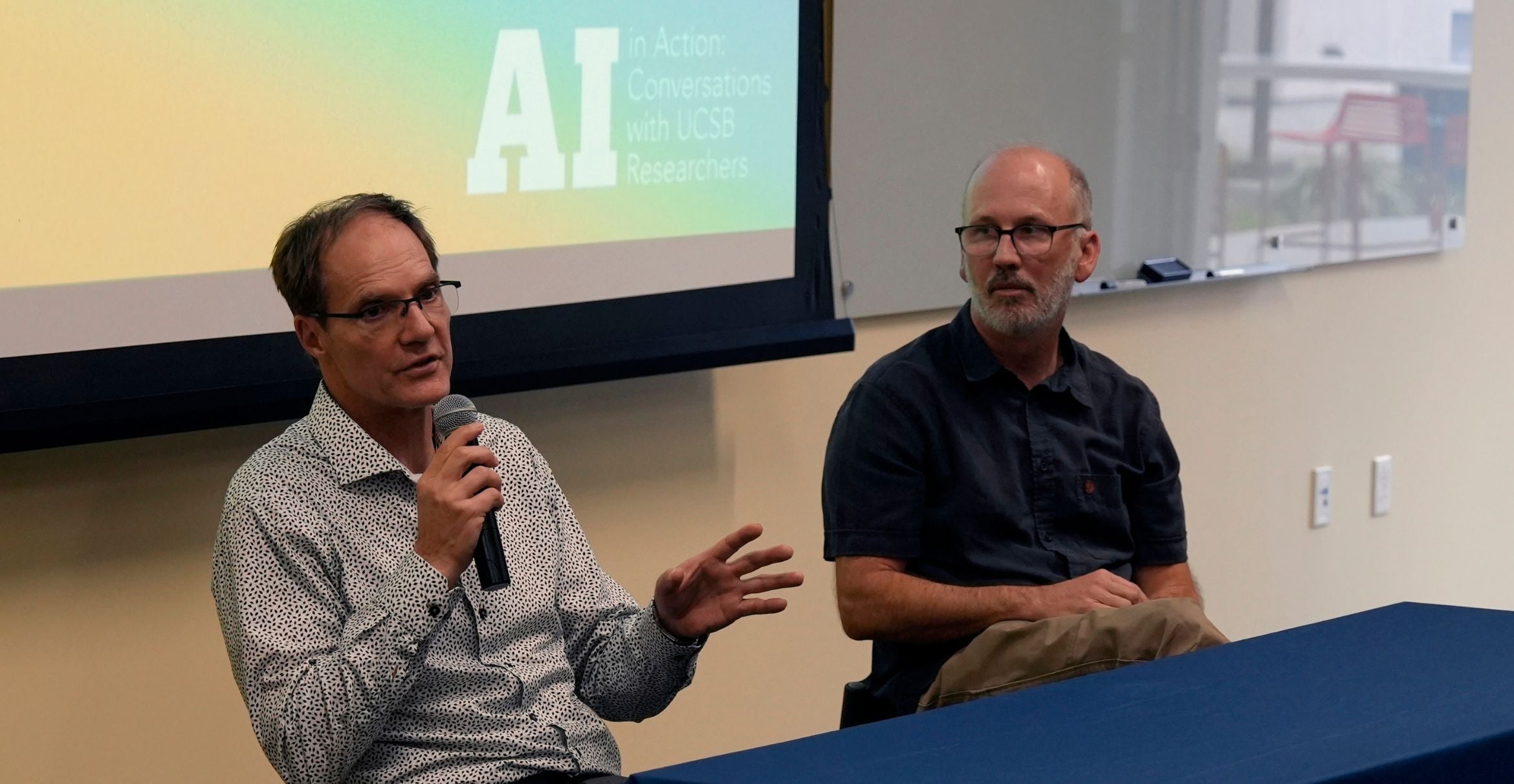
NSF-supported collaborative project to connect culture, creativity and technological innovation
Researchers from the arts, humanities, and engineering divisions at UC Santa Barbara and UCLA are leading a dynamic push to foster stronger ties among America's vibrant creative sector and those involved in pioneering scientific research, technology innovation and workforce evolution.
Funded by a $1.3 million award from the National Science Foundation, the yearlong project will include a series of activities exploring how to connect regional strengths in culture and technology, foster U.S. competitiveness in industries involved in the creative sector and strengthen workforce development at the nexus of creativity and technology in critical and emerging areas of innovation, such as artificial intelligence.
“Practitioners within the creative industries possess substantial technical knowledge in the development, application, and impacts of creative technologies,” said the project’s co-principal investigator Jennifer Jacobs, an assistant professor at UC Santa Barbara in the departments of media arts and technology and computer ccience. “In my own experience working with art, design, and manufacturing professionals, I’ve found that they bring critical forms of knowledge to bear that are often absent in academic science and engineering research. Forging pathways for collaboration and dialog across technology research and cultural practice will aid researchers in identifying new opportunities for technical innovation.”
In early 2024, UCLA will launch a project office supported by the NSF’s new directorate for Technology, Innovation and Partnerships, or TIP, first established in 2022. This hub will coordinate and fund nationwide activities, including regional workshops to be held across the country, producing an industry summit with NSF by fall 2024 and hosting a national conference at UCLA by December. These events will facilitate dialogue and collaboration between diverse stakeholders, from small businesses and economic development agencies to students and faculty across disciplines.
“This project explores how culture and creativity can be a meaningful part of TIP’s goal of engaging all Americans in innovation,” said Jeff Burke, professor and associate dean of research and technology for the UCLA School of Theater, Film and Television. “My hope is that in five years, we’ll see a wider range of lasting partnerships between technology research and development and the arts, humanities, and creative sector. I’d love to contribute to a future where people whose ingenuity spans these disciplinary boundaries are supported and encouraged to pursue them together.”
Burke’s collaborators at UCLA are Lauren Lee McCarthy, professor of design media arts at the UCLA School of the Arts and Architecture; Chris Johanson, chair of digital humanities and associate professor of classics; and Gregory Pottie, professor of electrical and computer engineering at the UCLA Samueli School of Engineering.
“I’m excited about the potential for this project to elevate and expand the diversity of voices in the conversation around technological innovation,” McCarthy said. “My hope is that this work can open access to new communities and sectors, and recognize many different types of knowledge making, creativity and innovation.”
By the end of 2024, the team plans to recommend a five- to 10-year roadmap for further engagement by funders, researchers and practitioners, incorporating ideas from participants across the country.
“Historically, technology and the arts have inspired each other to further advances in both,” Pottie said. “With this initiative, NSF will be proactively gathering expert advice from industry, communities and academia on the best ways to foster a diverse multidisciplinary workforce capable of advancing U.S. leadership in new forms of cultural expression that incorporate the latest technologies.”
TIP’s mission is to accelerate the development of new technologies and products that improve Americans’ way of life, grow the economy and create new jobs, and strengthen and sustain U.S. competitiveness.
In their proposal for the project, researchers contend that enhancing and sustaining innovation ecosystems that bring together culture, creativity and technology will broadly benefit the American economy, noting that creative industries — spanning performing arts, visual arts, design, media, publishing and more, accounted for more than $1 trillion to the U.S. gross domestic product in 2021, according to the National Assembly of State Arts Agencies.
Sonia Fernandez
Senior Science Writer
(805) 893-4765
sonia.fernandez@ucsb.edu



